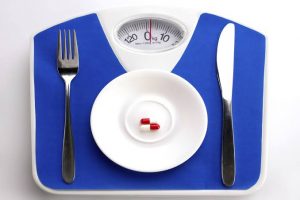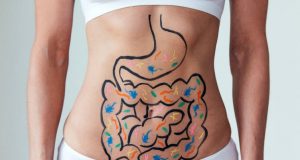Cancer has been a threat globally and every professional has been on their toes to proffer a solution.
Immunotherapy, therefore, is one of the ways to help manage cancer patients
Immunotherapy involves stimulation of the immune system to help fight cancer. This method has shown tremendous improvements in the treatment of many tumors.
Even with this development, there are individual responses to the treatment. For some people, the tumors might shrink or disappear totally, and for some, no effects at all.
Further research has gone into this case, and it has been noticed that the gut microbiome might have a role to play in the efficacy of immunotherapy. So, therefore, modifying the gut bacterium may help improve tumor response to immunotherapy.
FIBER INTAKE AND MELANOMA RISK

According to a study, a higher intake of dietary fiber (responsible for the promotion of healthy gut) was associated with improved response to immunotherapy, and in preclinical models, dietary fiber manipulation impacted antitumor immunity. According to Jennifer McQuade, MD, assistant professor of melanoma medical oncology at The University of Texas MD Anderson Cancer Center, “The dietary pattern associated with response to immunotherapy is the same diet recommended by American Cancer Society and American Institute for Cancer Research, which includes a diet rich in fruits and vegetables, whole grains and legumes. This diet is also recommended for secondary cancer prevention and prevention of cardiovascular disease and health in general.”
Furthermore, research has it that every 5% increase in fiber intake resulted in a 30% reduced risk of cancer progression or death.
RATIONALE
Previous research has shown gut microbes may regulate response to drugs that block protein (T-cells) checkpoints. Extensive studies on the effect of diet and probiotic supplements on patients with melanoma using drugs that inhibit these proteins are needed.
METHODOLOGY
McQuade and colleagues conducted a randomized prospective clinical trial to assess how varying fiber intake affects the gut microbiome and immune response among 128 patients with advanced melanoma receiving treatment with immune checkpoint inhibitors.
Researchers examined fecal microbiota profiles, dietary habits, and commercially available probiotic supplement use, and performed parallel preclinical studies.
KEY FINDINGS
According to a randomized prospective clinical trial to assess how varying fiber intake affects the gut microbiome and immune response among 123 patients with advanced melanoma, Patients who reported higher consumption of dietary fiber intake from fruits, vegetables, legumes, and whole grains experienced significantly longer PFS. Median PFS was not reached among the 37 patients with sufficient fiber intake, compared with median PFS of 13 months among the 91 patients with insufficient fiber intake.
After this, it was noticed that 82% of patients with both sufficient fiber intake and no probiotic use responded well to immunotherapy, compared with only 59% of patients who reported either insufficient fiber intake or probiotic use.
Probiotic supplement use alone did not appear associated with a significant difference, in short, data suggests it reduces chances of survival.
IMPLICATIONS
Based on these findings, oncologists, dietitians, and all others managing cancer patients, it is important to focus on how much fiber is consumed in their diet.
The aim is to test the hypothesis that dietary fiber will help modulate the gut environment and enhance immunity.
Further research is still going on to ascertain variations in fiber and their roles in helping patients with cancer (melanoma especially).
SOURCES:
1. https://www.nih.gov/news-events/nih-research-matters/fiber-diet-linked-cancer-immunotherapy-response
2. https://medicaldialogues.in/diet-nutrition/news/association-between-vitamin-d-and-type-2-diabetes-is-affected-by-magnesium-intake-study-finds-86270?infinitescroll=1
3. : Dietary fiber and probiotics influence the gut microbiome and melanoma immunotherapy response. Spencer CN, McQuade JL, Gopalakrishnan V, McCulloch JA, Vetizou M, Cogdill AP, Khan MAW, Zhang X, White MG, Peterson CB, Wong MC, Morad G, Rodgers T, Badger JH, Helmink BA, Andrews MC, Rodrigues RR, Morgun A, Kim YS, Roszik J, Hoffman KL, Zheng J, Zhou Y, Medik YB, Kahn LM, Johnson S, Hudgens CW, Wani K, Gaudreau PO, Harris AL, Jamal MA, Baruch EN, Perez-Guijarro E, Day CP, Merlino G, Pazdrak B, Lochmann BS, Szczepaniak-Sloane RA, Arora R, Anderson J, Zobniw CM, Posada E, Sirmans E, Simon J, Haydu LE, Burton EM, Wang L, Dang M, Clise-Dwyer K, Schneider S, Chapman T, Anang NAS, Duncan S, Toker J, Malke JC, Glitza IC, Amaria RN, Tawbi HA, Diab A, Wong MK, Patel SP, Woodman SE, Davies MA, Ross MI, Gershenwald JE, Lee JE, Hwu P, Jensen V, Samuels Y, Straussman R, Ajami NJ, Nelson KC, Nezi L, Petrosino JF, Futreal PA, Lazar AJ, Hu J, Jenq RR, Tetzlaff MT, Yan Y, Garrett WS, Huttenhower C, Sharma P, Watowich SS, Allison JP, Cohen L, Trinchieri G, Daniel CR, Wargo JA. Science. 2021 Dec 24;374(6575):1632-1640. doi: 10.1126/science.aaz7015. Epub 2021 Dec 23. PMID: 34941392.





 The talk about gut health and hormones isn’t yet hitting the internet as it should. Rather, everyone is more concerned about their shape and the size of their belly. Your gut and hormones are intrinsically connected and affect your health in ways you can’t imagine.
The talk about gut health and hormones isn’t yet hitting the internet as it should. Rather, everyone is more concerned about their shape and the size of their belly. Your gut and hormones are intrinsically connected and affect your health in ways you can’t imagine.